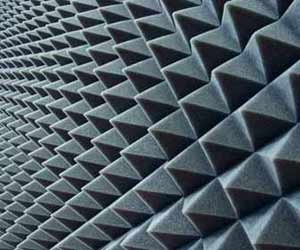Acoustic Engineer Jobs
What do you know about sound? Sounds are vibrations that propagate as a wave through different mediums. Your brain receives and interprets those waves and the result is what you hear. There are countless different sounds in the world – a drum, the wind, a car stereo, a guitar. The science of sound and vibrations and how they behave in different environments is a fascinating thing. It’s called acoustics. There are people who focus, specialize, and commit their career to working in the field of acoustics.

One cool niche of acoustics is acoustical engineering. The lucky folks that work in the world of acoustical engineering are called acoustic engineers. Their job revolves around the application of acoustics. This means that they design and analyze ways to control sounds – both positive and negative sounds. In a real world application this means that they deal with things like noise control, ultrasound technology, and sound synthesizers.
Acoustic engineers work on projects like developing audio processing software, designing concert halls, working on car audio systems, building soundproof rooms like recording studios, enhancing loudspeakers and microphones, minimizing noise from highways and air traffic, ensuring that buildings comply with noise ordinances, noise proofing hotel rooms, or designing ultrasound systems for hospitals. It’s impressive when you think about all of the places where you can appreciate the handiwork of an acoustic engineer.
To become an acoustic engineer, you must have at a minimum of a bachelor’s in acoustics, physics, or engineering. A solid grasp of sound principles and behaviors like refraction, absorption, diffraction, and reverberation are mandatory if you want to be a successful acoustic engineer. Penn State is one renowned university for it’s acoustics program. According to the Acoustical Society of America, there are many branches of acoustics to specialize in such as Architectural, Engineering, Musical, Noise Control, Physical, Speech and Hearing, Underwater, Bioacoustics, Medical, and Structural. As you can see acoustics covers a wide variety of niches.
After graduating with with bachelors degree accredited by the Accreditation Board for Engineering and Technology, acoustic engineers need to seek a state license to become a Professional Engineer. Some employers also require certification from the Institute of Noise Control Engineering.
Acoustic engineers can find jobs with acoustical consulting firms. Other employers that hire acoustic engineers include engineering firms, property development firms, energy companies, construction companies, auto and aviation companies, governments, sound system manufacturers, medical device manufacturers, and even the armed forces. Any business that is concerned with sounds needs an acoustic engineer. Whether the goal of the project is to limit the sounds of jet engines, enhance the sound of an orchestra, improve ultrasound technologies, or fine-tune underwater sonar – a qualified acoustic engineer is necessary.
Acoustic engineers work closely with designers, engineers, sound techs, architects, and other professionals. Each acoustical engineering project is unique. The goal is either to cut down on unwanted sounds or improve the clarity and quality of desired sounds. Acoustical engineering is a fun and exciting career choice.
Do you have a well-trained ear? Do you enjoy high quality and crystal clear sounds? Are you an expert at sound reduction? Maybe you’d enjoy life as an acoustic engineer. According to many websites, acoustic engineers make about $75,000 or more per year. That’s an excellent salary for such a cool job.
Quick Facts About Acoustic Engineers
Job Title: Acoustic Engineer, Acoustical Engineer
Office: On sound-oriented projects
Description: Design and analyze ways to control both the positive and negative effects of sound
Certifications/Education: Bachelor’s degree in engineering, State License
Necessary Skills: In-depth knowledge of sounds and vibrations, Math, Science, Engineering
Potential Employers: Acoustical consulting firms, transportation companies, energy companies, governments, construction firms
Pay: $75,000 or more per year


 Teach English in Asia
Teach English in Asia  Cruise Ship Jobs
Cruise Ship Jobs  Alaska Fishing Industry Jobs
Alaska Fishing Industry Jobs  Sharing Economy / Gig Economy
Sharing Economy / Gig Economy